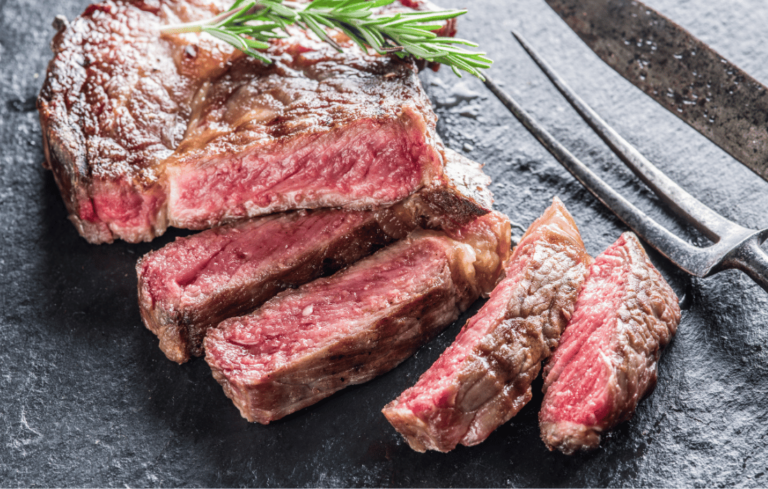When I began my career in holistic health and nutrition, I quickly realized how little I truly understood about the way our food system works and how our bodies are meant to function. Studying under visionaries like Paul Chek opened my eyes to the grim reality: our current food system is riddled with immoral practices and laden with carcinogens, all of which are driving the disease epidemic in the United States. For athletes, the stakes are even higher. Chronic inflammation, fueled by these toxic foods, is a major barrier to optimal recovery and performance.
For athletes, food isn’t just fuel; it’s the cornerstone of performance and recovery. And processed foods—laden with seed oils, artificial dyes, and carcinogenic compounds—are the nutritional equivalent of putting regular gas in a high-performance race car. Let’s break down why processed foods are so detrimental, the hidden dangers lurking in these products, and what athletes should prioritize for optimal health and performance.
The Processed Food Trap: A Toxic Cocktail
Processed foods dominate the American diet. From frozen dinners to snack bars, they promise convenience and affordability. But the reality is these products come with a host of hidden dangers that wreak havoc on the human body. Here are three major offenders:
1. Seed Oils: The Silent Inflammation Machine
Seed oils, like canola, soybean, corn, and sunflower oil, are ubiquitous in processed foods. These oils are high in omega-6 fatty acids, which, when consumed in excess, create a pro-inflammatory environment in the body. Chronic inflammation impairs recovery, increases the risk of injury, and contributes to long-term conditions like arthritis—a nightmare for any athlete.
What’s worse, seed oils oxidize easily when exposed to heat, creating harmful compounds called aldehydes, which are linked to oxidative stress and cellular damage. Studies have shown that excessive omega-6 intake is associated with chronic inflammation and metabolic disorders. Actual health experts like Paul Chek and Paul Saladino emphasize the importance of balancing omega-6 and omega-3 fatty acid intake to prevent inflammation.
2. Artificial Dyes: A Rainbow of Risks
Brightly colored snacks and drinks often contain artificial dyes like Red 40, Yellow 5, and Blue 1. These dyes are made from petroleum and have been linked to behavioral issues in children, allergic reactions, and even cancer in animal studies. Research suggests that artificial dyes contribute to hyperactivity in children and may have neurotoxic effects. For athletes, these compounds add unnecessary toxins to the body, burdening the liver and other detox pathways.
3. Carcinogenic Compounds: Hidden Dangers in Everyday Foods
Many processed foods contain compounds that have been classified as carcinogens. Examples include:
Acrylamide: Found in fried foods like potato chips and French fries, acrylamide is a byproduct of cooking at high temperatures and has been linked to cancer in animal studies. The International Agency for Research on Cancer classifies acrylamide as a probable human carcinogen.
Nitrites and Nitrates: Common in processed meats like hot dogs, these preservatives can convert into nitrosamines, which are potent carcinogens. Several studies highlight the risks associated with these compounds, particularly their role in colorectal cancer.
BPA and Phthalates: Chemicals leached from food packaging can disrupt hormones and have been linked to cancer, reproductive issues, and obesity. Studies underline the dangers of BPA exposure in disrupting endocrine function.
Why Processed Foods Spell Trouble for Athletes
Inflammation and Recovery
Athletes already put their bodies through intense stress. Adding a diet high in inflammatory foods like those rich in seed oils only exacerbates the problem. Recovery slows, joint pain increases, and overall performance suffers. Research has shown that high consumption of processed foods correlates with markers of systemic inflammation, impairing athletic recovery.
Nutritional Deficiencies
Processed foods are often stripped of essential vitamins and minerals during production. While some nutrients are added back in (like synthetic folic acid), these are not as bioavailable as those found in whole foods. Nutritional deficiencies directly impact energy levels, muscle repair, and cognitive performance. For instance, a review in Nutrition highlights the link between nutrient deficiencies and impaired athletic performance.
Hormonal Disruption
Endocrine-disrupting chemicals (EDCs) in processed foods, like phthalates and BPA, interfere with hormone production. For male athletes, this can mean decreased testosterone—a hormone critical for muscle growth, energy, and recovery. Research in Environmental Health Perspectives indicates that BPA exposure is associated with reduced testosterone levels in men.
The Alternative: Nutrient-Dense Whole Foods
Processed foods are out; nutrient-dense whole foods are in. Here are the foods athletes should prioritize:
Grass-Fed and Pasture-Raised Animal Products
Grass-fed and pasture-raised meats are higher in omega-3 fatty acids and conjugated linoleic acid (CLA), both of which reduce inflammation and improve body composition. These products also support hormonal health, including testosterone production, as they provide bioavailable zinc, vitamin D, and healthy saturated fats—key nutrients for maintaining optimal testosterone levels. A study in The British Journal of Nutrition confirms that grass-fed beef contains significantly higher levels of omega-3s compared to grain-fed beef and supports overall hormonal balance.
Raw Milk and Raw Honey
Raw milk is a nutritional powerhouse, packed with bioavailable calcium, magnesium, and probiotics that support gut health—a key player in hormone regulation. Raw milk is also a great source of saturated fats, which are essential for testosterone production. Research from the Journal of Allergy and Clinical Immunology highlights how raw milk consumption reduces the risk of asthma and allergies, indirectly promoting overall systemic health.
Raw honey, on the other hand, is a natural energy booster and a testosterone-supporting superfood. Studies in Food Chemistry have demonstrated that raw honey contains flavonoids and phenolic compounds, which reduce oxidative stress—a known testosterone killer. Raw honey’s ability to stabilize blood sugar levels and provide quick, clean energy makes it an excellent addition to an athlete’s diet.
Organic Fruits and Vegetables
Organic produce is free from synthetic pesticides, which are linked to endocrine disruption. These foods are rich in antioxidants, vitamins, and minerals that combat oxidative stress and support overall health. For athletes, the high concentration of vitamin C, magnesium, and potassium found in organic fruits and vegetables helps lower cortisol levels, a stress hormone that can negatively impact testosterone production. According to a meta-analysis in The British Journal of Nutrition, organic crops have significantly higher antioxidant concentrations compared to conventional crops, enhancing their overall health benefits.
Unrefined Fats
Swap seed oils for healthy fats like grass-fed butter, tallow, unrefined coconut oil, and organic extra virgin olive oil. These fats not only provide clean energy but also support cellular function and hormone production. Saturated and monounsaturated fats are particularly important for testosterone synthesis, as studies confirm their role in maintaining hormonal balance and reducing inflammation. Athletes who include these fats in their diet often report improved energy, recovery, and strength.
Practical Tips for Athletes
Cook at Home: Prepare meals with whole, organic ingredients to avoid hidden toxins.
Read Labels: Avoid foods with seed oils, artificial dyes, and unrecognizable ingredients.
Support Local Farmers: Invest in grass-fed meats, raw dairy, and organic produce from local farms.
Stay Educated: Learn about the hidden dangers of processed foods and share your knowledge with teammates and friends.
Choose Whole Foods: Prioritize unprocessed, nutrient-dense foods to fuel your body effectively.
RFK Jr. and the MAHA Movement
Robert F. Kennedy Jr. has emerged as a key advocate for holistic health and sustainable practices through the MAHA (Make America Healthy Again) movement. His efforts focus on reducing the prevalence of harmful additives in processed foods and advocating for greater transparency in food labeling. As the incoming Secretary of Health and Human Services under the Trump administration, RFK Jr. aims to prioritize public health initiatives that address the root causes of chronic disease, including dietary reforms. His leadership is expected to bring significant changes to food policy and encourage a nationwide shift toward nutrient-dense, whole foods.
Wrapping Up
Processed foods may be convenient, but they come with hidden costs that no athlete can afford. From seed oils that fuel chronic inflammation to artificial dyes and carcinogens that burden the body, these foods undermine performance, recovery, and long-term health. By transitioning to nutrient-dense whole foods like grass-fed meats, organic produce, raw milk, and unrefined fats, athletes can fuel their bodies for peak performance and longevity. As Robert F. Kennedy Jr. and the MAHA movement advocate for systemic changes, it’s up to each individual to make informed choices and prioritize their health. When you choose better food, you choose better outcomes—for your body, your sport, and your life.









